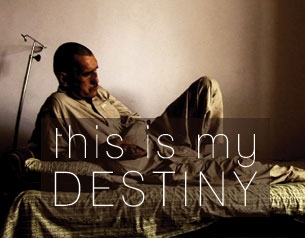This is My Destiny
A searing insight into a nation's addiction.
 In Afghanistan an epidemic of drug addiction has seeped into every nook of society. This is the story of a place where opium has become so commonplace it is used to calm babies. Where mothers know it is bad for their children but offer it anyway, as the only palliative available.
In Afghanistan an epidemic of drug addiction has seeped into every nook of society. This is the story of a place where opium has become so commonplace it is used to calm babies. Where mothers know it is bad for their children but offer it anyway, as the only palliative available.
From a pockmarked Kabul squat to the desiccated northern plains, the oblivion of opium has become the last resort. Mothers across the remote regions of Afghanistan know they shouldn't do it - but when her baby has a stomach-ache, Khoshan gives "her a puff to calm down her pain so she won't die." When challenged she sobs: "There wasn't...There wasn't a doctor." It's a matter of days before Khoshan and her daughter go to the newly opened rehabilitation clinic. But for both mother and baby, the sweats and convulsions of withdrawal are hard to bear. "If only there was opium...my legs wouldn't be aching". With little work and little food, opium also staves off boredom and hunger. As Khoshan agonises, her older child edges in: "the bull and the calf are in the broadbean patch, they've eaten the broadbeans". "What does this innocent baby understand? You made her an opium addict...don't give her opium again", chides the drug clinic's doctor. Yet with little healthcare and an uneducated population, he knows that it's not just the mother's fault. But the clinic does have it's success stories; "I was an opium addict, so was my father, so was my grandfather", says Mahram. Today he is drug free. Khoshan carries her baby out of the clinic and disappears back into an unforgiving landscape, peppered with poppy fields. The subject of this film is tough but the sensitive narrative and the beauty of the photography, somehow manage to bring an element of lightness.
 WINNER, Best Documentary Feature, Film Directing 4 Women International Film Festival.
LEARN MORE.
WINNER, Best Documentary Feature, Film Directing 4 Women International Film Festival.
LEARN MORE.
WATCH MORE.
JOIN THE DISCUSSION.


